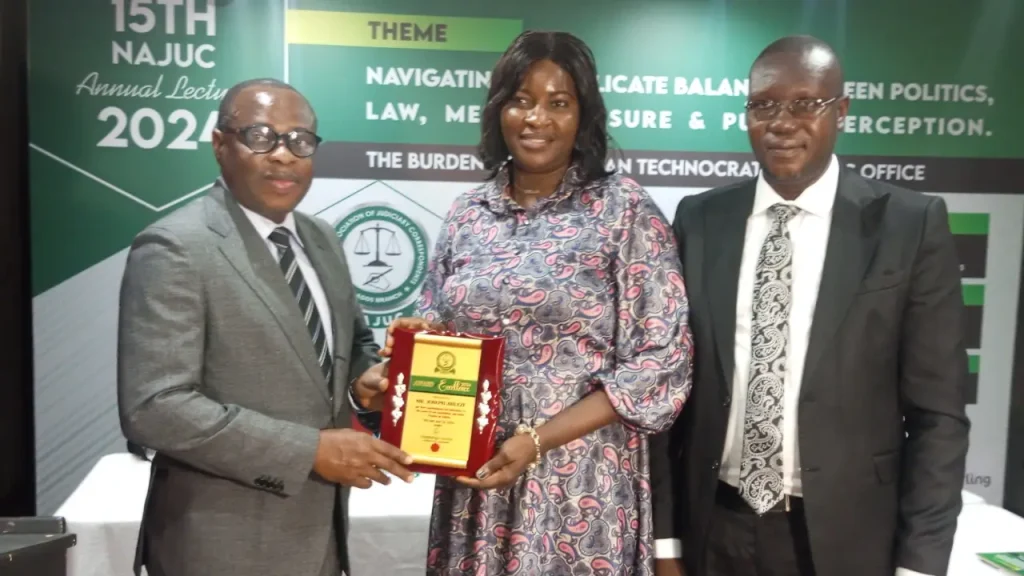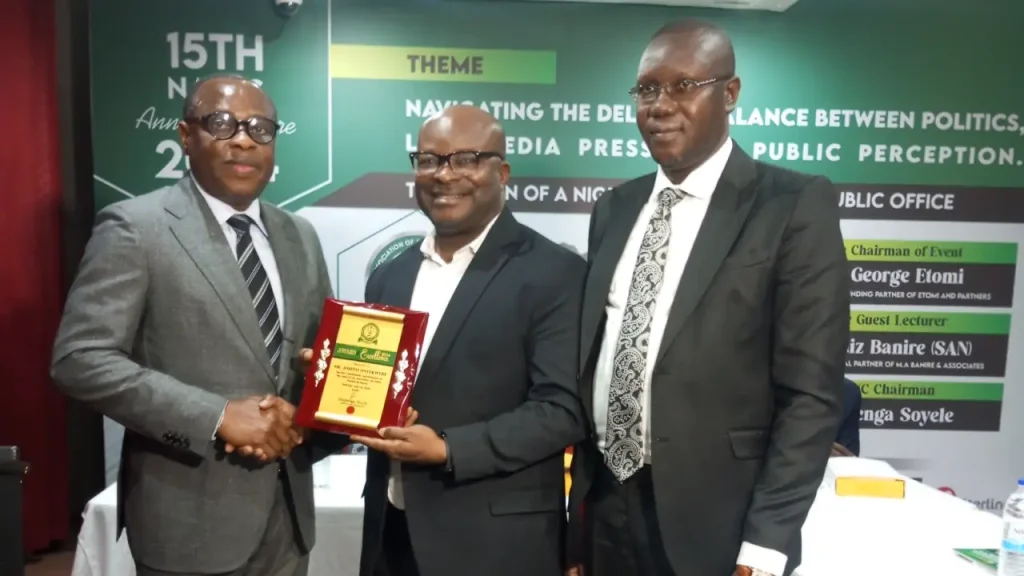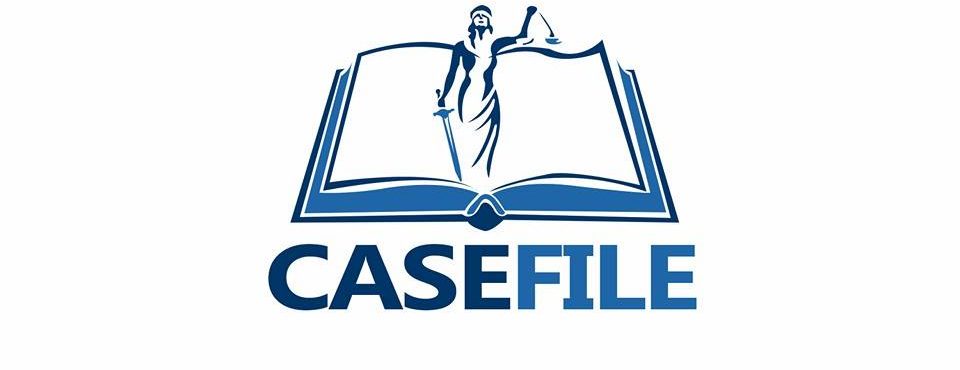A former Chairman of the Asset Management Corporation of Nigeria, AMCON, Dr. Muiz Banire (SAN) has counselled that interaction with the legal community is a way any technocrat or civil servant can survive in public service in Nigeria.
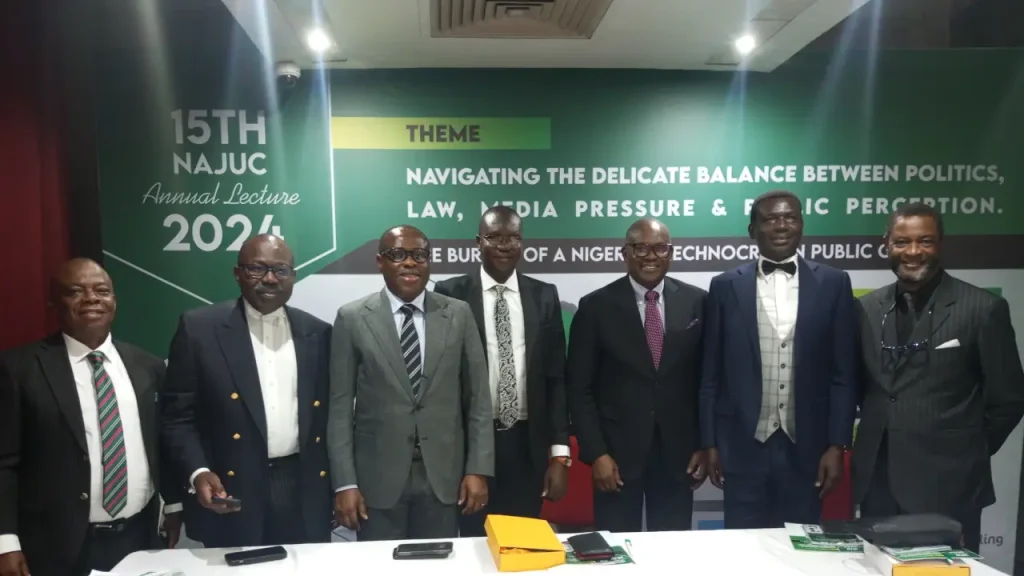
The Senior Advocate of Nigeria gave this advice at a lecture titled: “Navigating the Delicate Balance Between Politics, Law, Media Pressure and Public Perception: The Burden of a Nigerian Technocrat in Public Office.”
NAJUC Lecture
He reiterated this position on Thursday at the 15th annual lecture organised by Olugbenga Soyele led National Association of Judiciary Correspondents, NAJUC, Lagos chapter.
Citing various challenges constituting a burden on technocrats in public offices, and hindering their performances, Dr. Banire said a technocrat must be conscious of the environmental and legal restrictions that limit his ability while in office.
Due process, red-tapism, administrative bottleneck, cultural and religious considerations, public perception, legislative interference, and media pressure were highlighted by the former Lagos State Commissioner of Environment and Transport.
Citing the case of in-house technocrats/civil servants, Banire said these species of technocrats are now in a more precarious situation.
He said “ln-house technocrats are now in a more precarious situation. They are not only demoralised by the insecurity of tenure; terminal growth for them is becoming an illusion. They therefore hardly have much to look up to again. Worse still is their remuneration package that has pushed them into penury.
“Politicians treat them as dregs, affording them no serious recognition. Consequently, not the best in recent times is derivable from the in-house technocrats who now have joined the bandwagons of politicians to scoop whatever they can access while in office. This is the country’s story.
To overcome these challenges, Banire stated that technocrats in public offices must maintain a delicate balance, such that the technocrat must work with legal experts.
According to him, “There must be routine advice with the legal unit, if for example, let’s say you are the head of an agency, never joke with your legal department from time to time in anything you want to do, just to be on the safe side, because the alternative to be on the safe side is suicide.”
He also canvased engagement with the inter-disciplinary dialogue and other policy makers.
He further advised technocrats to be above board, and ensure that dealings are ethical, transparent and accountable.
He opined, “Interact and try to work along with the politicians but with a caveat without compromising your principles and keep yourself abreast of development within the law itself.”
Banire said they must be vigilant and make sure that they put their nose and ensure that they make inputs when laws concerning their areas/offices are being enacted.
Other discussants harp on professionalism at NAJUC lecture
Mr. George Etomi, Chairman of the occasion, advised NAJUC members to adhere to the finest tenets of journalism which requires research, going beyond the headlines and finding out what is probable, what is possible and what simply cannot hold, because in this time of social media, when everybody is rushing to grab the headlines, you intend to breach some of your finest tenets of reportage which require you to be honest and fair to everyone.
He remarked that even a retraction never makes up for the damage caused to somebody or an institution.
Abiodun Olatunji, SAN, the patron of the association said for democracy to thrive, the country needs strong and vibrant media and the judiciary.
He observed that “The level of patriotism in Nigeria is super low. We have different issues all over the world, in different countries but you can hardly see an American coming out to run down America as a country, the same thing happens to the United Kingdom, but every now and then on the social media we see Nigerians running down the country, running down its government, it is we Nigeria that can prop up our country, that can put it on the right path”
He submitted that the media, politics and the judiciary are interwoven in the building of a strong democracy.
Olabisi Makanjuola, Chairman of the Lagos branch of the Nigerian Bar Association in his intervention at the event advised the media to avoid headlines that have no connotation with the content of their reports.
A human rights lawyer Ebun-Olu Adegboruwa (SAN) received an Award of Excellence for his outstanding contributions and dedication to legal practice, media freedom, and human rights enforcement in Nigeria at the event.
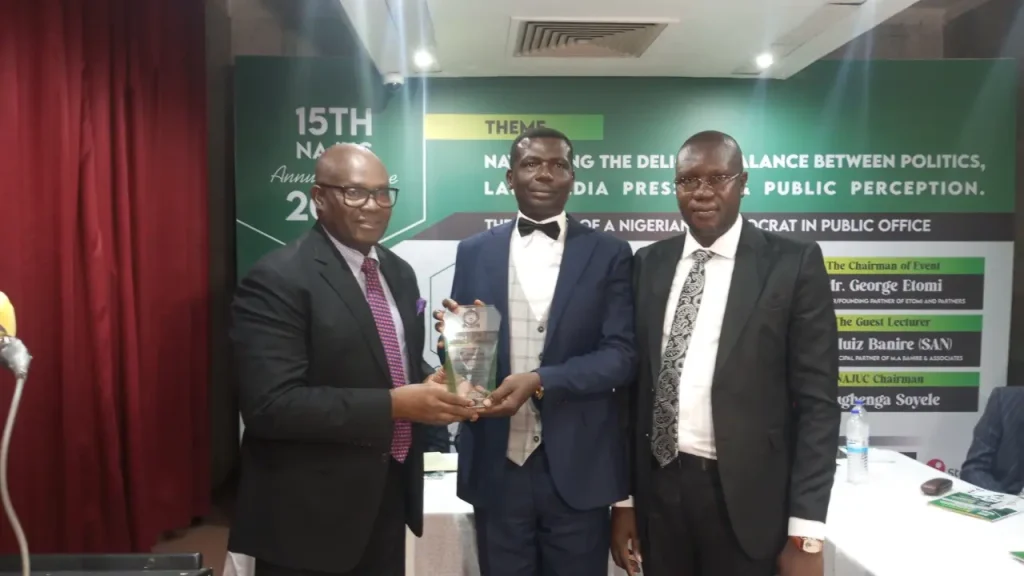
Two versatile journalists, Joseph Jibueze of The Nation Newspaper and Joseph Onyekwere of The Guardian Newspaper, who have since become editors in their respective organisations, were also honoured for their contributions to the media profession and the association.
